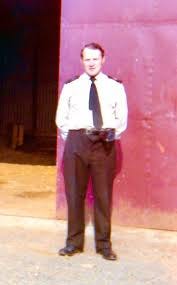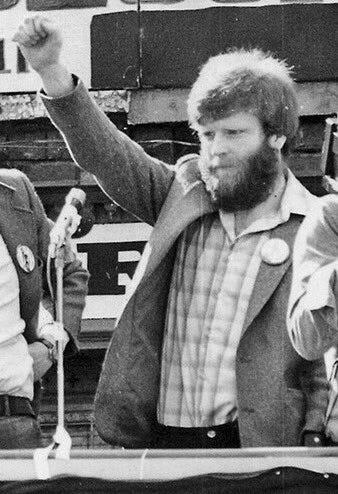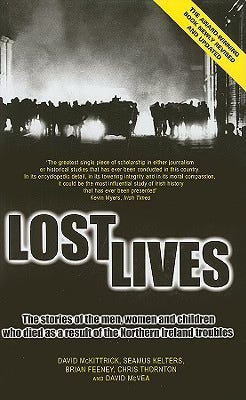May 1979 saw RCA Records release David Bowie's 13th studio album, "Lodger". In Northern Ireland, somewhat of a lodger in prison, Kieran Nugent was about to be released.
Political Developments in May 1979
May began with interesting notes from a steering group that met on the 2nd to discuss the GAA and its potential political leanings. The most interesting section was titled ‘Political Affiliations’ and went as follows;
(i) The GAA has in the past claimed to be a non-political, non-sectarian organisation representing a cross-section of nationally minded people. However, the organisation's official guide makes frequent references to the GAA's commitment to a free, united and Gaelic Ireland.
(ii) In 1974, at the GAA’s National Congress in Dundalk, there was a clear manifestation of the GAA's anti-British stance when motions were adopted condemning British occupation of GAA grounds and the British Forces' treatment of Irish people.
(iii) Again, in March 79, at the Annual Congress in Dublin, a resolution
was adopted, which modified the rule which describes the organisation as non-political. This rule now describes the Association as "non-party political". The Congress also adopted a motion calling for the Association to "unequivocally support the struggle for national liberation and the right to self-determination of the Irish people in the 32 counties without interference from foreign powers".(iv) The Londonderry GAA, in May 78, spoke strongly in favour of concessions on special category and has contributed to the Republican Prisoners' welfare fund and in Aug 78, as a gesture of solidarity with the H Block protestors, cancelled all fixtures to enable its members to participate in the Coalisland - Dungannon protest march.
(v) In March 79, the then President of the GAA, Mr Con Murphy, was quoted in the press as condemning the indecent and inhuman treatment of prisoners in the H Blocks and adding that this was a cause for concern to the GAA.
(vi) In recent months, the GAA have been particularly vocal at local and national level in protesting about security force occupation of part of the Rangers Club ground at Crossmaglen. The subject was raised by the Republic's Foreign Minister, Mr O'Kennedy, when he recently met the Secretary of State, and attempts have been made to make the issue a national one with a well-orchestrated campaign involving GAA clubs throughout Ireland, members of the Dail Eireann and the House of Commons.
The following day, The Conservative Party won the general election, and Margaret Thatcher became Prime Minister. Humphrey Atkins was appointed as Secretary of State for Northern Ireland. His appointment prompted the Belfast Telegraph to ask 'Humphrey Who?'. Meanwhile, in Northern Ireland, the turnout was 68.4 per cent, and the Democratic Unionist Party, led by Ian Paisley, gained two seats from the Ulster Unionist Party.
On the 9th of May, a document was sent to the Secretary of State detailing the plans for Kieran Nugent’s release. Nugent had been one of the first ‘Blanket Men’ during the troubles. The details of his release were as follows;
The Minister of State, Mr Alison, has approved the proposals in the attached note.
A further proposal for pre-emptive action was discussed with the Minister who approved it in principle, subject to the Secretary of State's decision.
The proposal is to allow an ITN team (including cameras) to visit Maze tomorrow to see both clean and dirty cells and to interview Nugent. Nugent may refuse, but if he does so, we expect this to be to our advantage. It would be just as effective in propaganda terms from our point of view. Discussions are now taking place with the Governor.
I seek the Secretary of State's concurrence.
Tomorrow morning, Thursday, Nugent will be bathed and his hair trimmed, with a hospital officer in attendance. Minimum necessary force will be used to bathe him, but if he shows a disposition to resist violently and there seems to be a risk of injury, the bathing will not be proceeded with. The prisoner will have his pre-release interview with Assistant Governor Chambers tomorrow and will be visited by a Chaplain and a member of the Board of Visitors.
Tomorrow afternoon, Nugent will also be offered a full medical examination in his cell in the pre-release unit if he insists (a suitable light and necessary equipment will be brought from the prison hospital). If he refuses this, he will be asked to sign a statement to that effect, which will be witnessed by the Medical Officer and attendant prison officers. Afterwards, the prisoner will be photographed.
On the morning of Friday, 11 May, Nugent will have an early breakfast. He will then be given his own clothes. The Medical Officer will again be in attendance and will carry out a further visual medical examination. Release is expected to take place at about 8.30 am.
The prison have reported that Nugent was abusive and threatening to staff in the cell block this morning. It seems clear that he is set on provoking a confrontation with, and if possible, an attack by staff. Staff are fully aware of the need for restraint in the face of provocation, and Nugent will be supervised at all times in the pre-release unit by an officer of at least Senior Officer rank.
The media will already know that Nugent is to be released on Friday. This morning's Irish News carried three advertisements - copy attached - about pickets at a number of RUC stations in Belfast on Friday evening and a "victory march for the first blanket men” on Sunday 13 May.
Whether or not we give the media the exact time of release, reporters are likely to be at the prison at around 8:30 am on Friday morning since this is the same time as Deery was released on 26 April. Mr Gilliland proposes to talk to selected media representatives tomorrow about Nugent’s case generally.
On the 10th of May, in the United States, a judge ruled that a group of men who were believed to be members of the IRA and also considered to be responsible for bombing the Ripon Barracks in North Yorkshire should not be extradited to Britain.
Shootings in May 1979


May 1st.
Ex-RUC member Frederick Lutton (40) was shot at his workplace, Argory House, near Moy, County Tyrone. The IRA were responsible.
May 6th.
Undercover RUC member Norman Prue (29) and undercover British Army member Robert Maughan (30), were both shot dead by the IRA at Lisnaskea, County Fermanagh.
May 19th.
Ex-UDR man Jack McClenaghan (64) was shot dead by the IRA while delivering bread to a shop in Garrison, County Fermanagh.
May 20th.
RUC officer Stanley Wray (50) was shot dead by the IRA outside of a church in Derry.
May 26th.
UDA volunteer George Surgeoner (28) was shot by loyalists in the Royal Bar, Shankill Road, Belfast. He died of his wounds on the 29th of May.
If you’d like to support the newsletter, why not buy me a ☕️ ?
Bombings in May 1979
May 7th.
The INLA attempted to lure RUC officers into a hut with a booby-trap bomb at a building site in the Galliagh area of Derry.
May 9th.
British soldier Andrew Webster (20) was killed in an IRA bomb attack on his foot patrol in the Turf Lodge area of Belfast.
Thanks very much for reading. I hope you found it interesting and will come back on Thursday!
I appreciate everyone who recently hit that heart icon ❤️ at the bottom. It makes it easier for other people to find this newsletter.
Thanks for the support!
I’ve also recently released Tales of The Troubles: Volume 1. The Early Years - 1960s. Check it out. It would be a great addition to your library or a gift for someone for Christmas. Stay tuned for Volume 2, covering the 1970s.
If you’d like to let me know what you think of today’s instalment, please comment below.
Some recommended reading based on research for this instalment.
Lost Lives: The Stories of the Men, Women and Children Who Died as a Result of the Northern Ireland Troubles by David McKittrick, Chris Thornton, Seamus Kelters and Brian Feeney.





